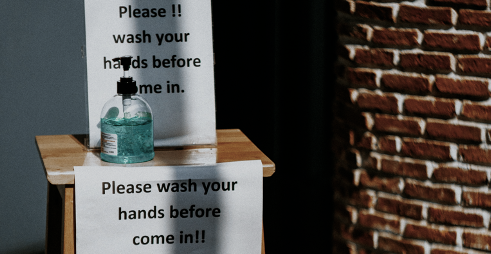Everyone is talking about 'New Normals'
Quite honestly, I rather like it. Change always happens, bringing with it both positives and negatives, so I try to take a very optimistic view to change, because we can only make the best of it. Any other attitude seems regressive.
Coronavirus is unquestionably a massive catalyst for change, in all areas of our lives: social, economic and behavioural, and we're only just beginning to see the lasting impacts. So it's understandable that when faced with seismic shifts, we want to understand them and get to grips with them as fast as possible.
On that very subject this week, my attention was caught most keenly by 3 articles, all featured in Estate Agent Today. And they combined to sum up for me the changes that our society in general is about to be faced with. But it is the impact of these changes on personal consumer behaviour, and business adaptation to them that most fascinates.
The first article summarised the views of NAEA Chief Executive Mark Hayward, on the impending easing of lockdown restrictions. Aside from reinforcing the view that agents must continue to strictly observe current restrictions, it was his view on potential future guidelines and instructions that grabs attention.
As you may have read, he forecasts property buyers viewing homes being forced to wear PPE, sellers having to disinfect their property (presumably before and after), only 2 adults permitted inside for 15 mins max, and sellers remaining distanced, often outside. This is jaw-dropping. Not in expectation - we should all see this coming. But in potential impact on consumer behaviour it would be cataclysmic.
How many people, both buyers and sellers, will tolerate this level of inconvenience? At best it will reduce viewings to only final critical choice making stages, with video and virtual viewings handling all previous choice filtering stages. But at worst it will seriously inhibit consumers on both sides of the equation from stepping in to the process.
The forecast for agency branches, when they open, is no less fascinating in the questions it raises. Seemingly they will have to put up screens separating staff and customers, have separate entry and exit doors (which will cause some challenges) and also provide PPE to staff. That's just a few of the possibilities, but the wider implications for our high streets also factor in at this point. We've all seen the changes at supermarkets! Will there be queues outside all open stores (including estate agents) along the high street? With dedicated staff monitoring entry numbers? I'll leave you to ponder the rest of that train of thought, to see what effect that will have on consumer desire to hit the high street.
If this all sounds like doom and gloom, I surely do not see it that way. It's change, and everyone will adapt. Just some better than others. In the second article, James Dearsley touches on much of this in his usual provocative style, which I happen to like because it's challenging. You don't have to agree to be usefully challenged, although in this instance there's a strong case.
Whatever the numbers are or not, the trend is likely to be exactly in the direction he and many others cited predict. Leaving the experts to forecast numbers and timescales, my view is that the evolution of online capability within the sector, will be the greatest underlying driver of the changes discussed. This is unstoppable, and we have seen it in almost every other sector. If it can happen in Banking, then Sandra Jones' (Dataloft) vision of agency experience hubs is surely spot on!
The final article really threw the cat among the pigeons, and boy was there some reaction. Here is a lesson in human nature. Irrespective of the facts and context of this story, of one estate agent who has opened their office, apparently with local permission, but surely against national guidelines, yet potentially following earlier mentioned guidelines yet to be published, someone will always step out of line and be the challenger.
Long after this story is forgotten, we will still be reviewing what happened next. What did thousands of other agents do? How did the general public react? Did it make any difference? Certainly the furore of comments focuses on the emotions of those commenting, the endless negative and occasionally positive implications, but for me the exciting question is whether this has just kicked off the new normal.
I'm an avid student of new normals now, reading everything I can. Let me know what you think or what you find on the subject. We're working hard to see if there are new normals emerging in the use of Live Chat on websites, as more consumers stay online as opposed to offline. Our weekly sentiment tracker data is set to evolve further on this subject next week. Get in touch and let me know your thoughts.
If you'd like to share your thoughts on any 'new normals', property or otherwise, just drop me a line at simon.taylor@yomdel.com
You can see what Yomdel is doing to help here.






